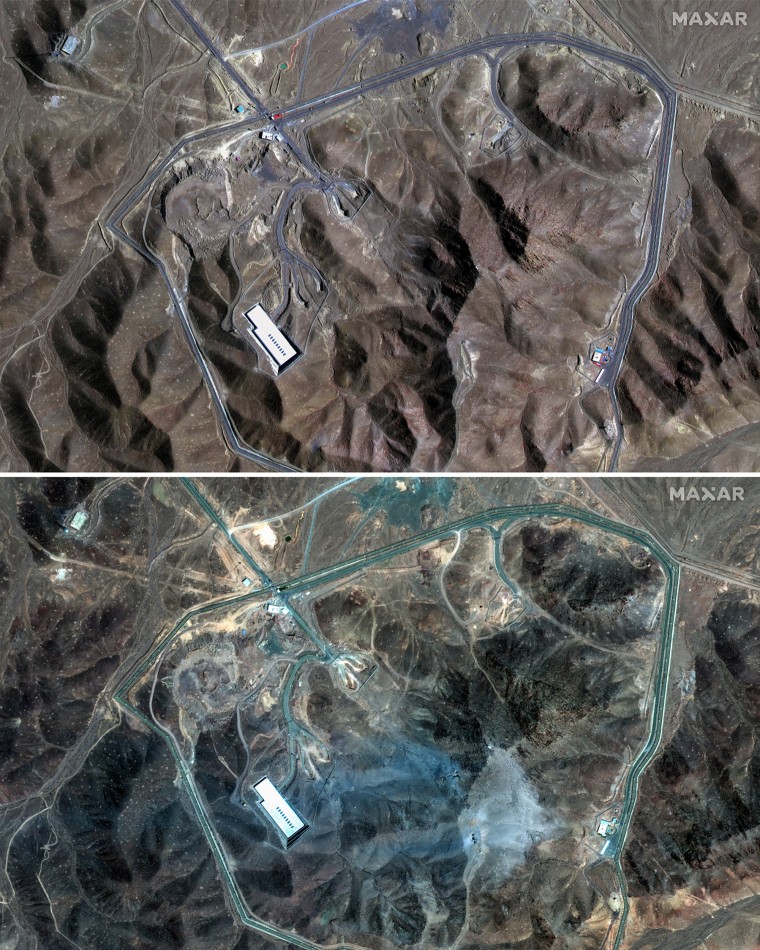US Airstrikes on Iran Highlight Shift in Nuclear Policy Focus

On June 21, 2025, the United States conducted airstrikes on three Iranian nuclear facilities, signaling a firm stance against Iran's nuclear development. In contrast, the US continues to prioritize diplomatic negotiations regarding North Korea's nuclear program, despite North Korea's estimated stockpile of 20 to 50 nuclear warheads following six nuclear tests. Experts suggest that the opportunity for a military solution to North Korea's nuclear threat has effectively passed. While the South Korean government has maintained a principle of denuclearization, its approach has fluctuated with changing administrations, leading to a diminished focus on North Korea within US policy priorities.
The US airstrikes on Iran are interpreted as a demonstration of America's commitment to preventing Iran's nuclear advancement at any cost. Some speculate that the Trump administration might consider targeting key North Korean nuclear sites, such as the Yongbyon and Kangson facilities. Yongbyon houses various nuclear material production facilities, while Kangson is believed to contain high-enriched uranium (HEU) production capabilities, similar to the Fordow underground facility in Iran that was bombed.
However, experts assess that the likelihood of the US preemptively striking North Korean nuclear facilities is low at this stage. Former Deputy Minister of National Defense Shin Beom-cheol warned that North Korea would retaliate immediately with short-range and medium-range ballistic missiles (SRBMs and MRBMs) against South Korea, Japan, or US territories like Guam if attacked. North Korea has previously indicated the potential to launch intercontinental ballistic missiles (ICBMs) with nuclear warheads aimed at the US mainland. The proximity of North Korean nuclear sites to both Pyongyang and China raises concerns about the potential for widespread radioactive contamination and casualties in the event of a strike.
During the first North Korean nuclear crisis in 1993, following North Korea's withdrawal from the Nuclear Non-Proliferation Treaty (NPT), the Clinton administration considered precision strikes on North Korean nuclear facilities using stealth bombers and Tomahawk cruise missiles. Although these plans were ultimately scrapped due to opposition from the South Korean government, they reflected a strong US resolve to address the North Korean nuclear issue. Since then, South Korea's approach to North Korea has oscillated between hardline and conciliatory policies, impacting US-South Korea relations. Former North Korean nuclear envoy Lee Yong-joon noted that in the early 2000s, both Democratic and Republican administrations were actively engaged in resolving the North Korean nuclear issue. However, following North Korea's first nuclear test in 2006 and subsequent tests, US policy shifted to a strategy of maintaining the status quo.
US policy towards Iran has also fluctuated between pressure and negotiation under different administrations, but major Middle Eastern countries have consistently demanded Iran's complete denuclearization, providing a degree of stability to US policy. Israel, despite facing opposition within the US, has taken military measures to curb Iran's nuclear program, influencing US actions. Sogang University Professor Sung Il-kwang stated that the US airstrikes on Iran were partly influenced by Israel's hardline stance, suggesting that without Israel's proactive involvement, the US may not have resorted to airstrikes. Allowing Iran's nuclear development could trigger a domino effect of nuclear proliferation in the Middle East.
The roles of China and Russia as North Korea's 'guardians' complicate efforts to resolve the North Korean nuclear issue. In response to the US strikes on Iranian facilities, major Middle Eastern powers like Turkey and Saudi Arabia have not strongly opposed the actions. Conversely, China has supported North Korean denuclearization while advocating for the easing of sanctions. Russia, engaged in military actions in Ukraine, has been receiving support from North Korea in terms of soldiers and weapons, indicating a quasi-alliance.
Former National Security Office chief Kim Sung-han remarked that North Korean leader Kim Jong-un is likely closely monitoring the US airstrikes on Iran to strategize a response. He suggested that North Korea may prioritize strengthening ties with Russia and China over immediate negotiations with the US, focusing on advancing its nuclear capabilities and ICBM development.
What do you think?
0 reactions





